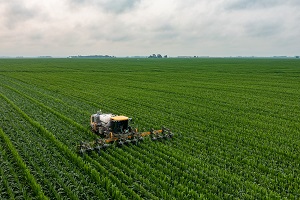
Agricultural Operations and Environmental Insurance
Agricultural pollution, also known as agricultural runoff or agrochemical pollution, refers to the contamination of water, soil, and air by various agricultural practices. These practices often involve the use of fertilizers, pesticides, herbicides, and animal waste, which can have detrimental effects on the environment and human health. Agricultural pollution is a significant environmental concern globally, particularly in areas with intensive agricultural practices. And it’s not just traditional farms seeing these environmental exposures—cannabis farms, biogas operations, wineries, and other specialty agri-businesses also fall into this category.
Sources of agricultural pollution are:
- Animal waste
- Chemical fertilizers
- Irrigation practices
- Pesticides and herbicides
- Soil erosion
- Odor control
- Volatility of biogas operations
The agricultural industry contributes to pollution in some of the following ways:
- Air Pollution: Agricultural activities such as burning crop residues and using certain fertilizers can release greenhouse gases and air pollutants, contributing to air pollution and climate change.
- Compromised Food Quality: Irrigating fields with water that has been polluted by chemical, metal, and anti-microbial residue from pharmaceutical companies, and overusing antibiotics with farm animals can transmit antibiotic residue and pesticide residues into animal-derived food products, putting people at risk when the antibiotic-resistant bacteria infecting animals is transmitted to humans via food consumption or through the environment by animal waste.
- Human Health: Pesticides and contaminated water sources can pose health risks to farmers, agricultural workers, and nearby communities. Pesticide products have shown to be an endocrine disruptor which causes issues in our bodies for reproductive and developmental diseases. Pollution caused by the agricultural industry is also partly to blame for the rise in antibiotic resistant bacteria. According to a recent report by the UN Environment Programme (UNEP), pollutants released into the environment by the agricultural sector have contributed to an environment that is conducive to dangerous and potentially deadly “superbugs” that don’t respond to antibiotic treatment.
- Loss of Biodiversity: Pesticides and habitat destruction associated with agricultural practices can harm beneficial pollinators and wildlife leading to a loss of biodiversity.
- Soil Degradation: Overuse of chemical fertilizers and pesticides can degrade soil quality over time, reducing its fertility and ability to support heathy plant growth.
- Water Pollution: Agricultural runoff can carry pesticides, fertilizers and animal waste into streams, rivers and lakes leading to water pollution including antibiotic resistant bacteria and PFAs. This contamination can harm aquatic ecosystems and affect drinking water sources.
As the demand for accountability increases, there will be additional pressure placed on agricultural businesses to guard against and take responsibility for environmental pollution. If humans are injured as a result of agricultural pollution, corporations may also be held liable.
Agri-businesses need to take environmental exposures seriously and pursue pollution specific insurance policies. These policies can be designed to offer coverage for the specific needs and exposures of a farming operation. From the site itself to the chemicals and machinery stored onsite, there are many risks associated with this type of business that can be addressed with the help of an environmental insurance specialist.
Please contact us for more information on environmental insurance products or to discuss an account.
Type: Blog
Topic: Agriculture, Farm